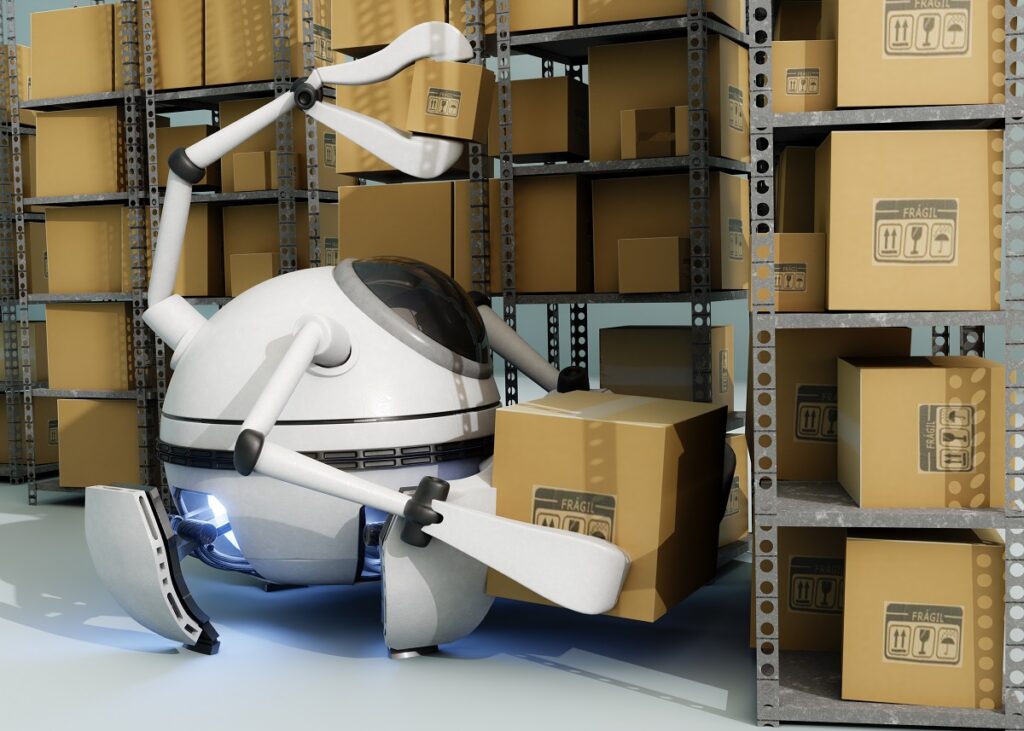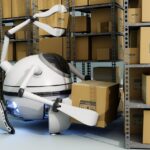There’s a widespread misconception that warehouses operate within a never-ending cycle of rudimentary processes, merely transferring goods from one point to another. While it’s true that goods are moved, today’s supply chain landscape is becoming increasingly intricate due to labor shortages, pandemic-related challenges, and the ever-shifting dynamics of the market.
Modern warehouses have undergone a significant transformation, largely due to the adoption of artificial intelligence (AI) solutions tailored for warehouse management. These AI tools are instrumental in helping companies address the demands of an always-active e-commerce ecosystem, managing an extensive array of product variations with fewer errors, and achieving faster response times. As we reflect on the past few years and look ahead, let’s explore how AI is revolutionizing warehouse operations.
AI, in essence, is the ability of a machine to autonomously accumulate knowledge through experience and subsequently make decisions based on that knowledge. Comparable to human cognition, these machines can process novel information and adapt to changing circumstances.
The integration of AI into machinery represents the pinnacle of sophistication. In the traditional approach, computers or machinery are given explicit instructions, often broken down into smaller tasks. In contrast, neural networks, a form of AI, eliminate the need for such input. Instead, these systems learn independently, even resolving issues without external assistance.
It’s indisputable that AI is a transformative technology. However, it would be erroneous to assume that its benefits are reserved solely for major corporations and tech giants. In truth, AI holds the potential to reshape every business across all industries.
Enhanced Communication: Warehouses thrive on a continuous flow of data. Yet, human involvement can introduce inefficiencies and costly errors. AI has the capacity to eradicate these inaccuracies, ensuring precise, on-demand data.
Heightened Productivity: While human labor remains essential, automation robots in warehouses can outperform humans in certain tasks, delivering faster and more accurate results.
Advanced Data Management: The era of cumbersome spreadsheets and intricate formulas can be left behind. AI’s algorithmic analysis empowers organizations to gain a comprehensive understanding of their current status, recognize patterns, and devise more effective strategic plans.
Enhanced Workplace Safety: AI solutions are adept at constant surveillance of warehouse environments and operations. They can analyze activities and assign risk scores. High-risk tasks can be delegated to robots, while safer activities are preserved for human workers.
Streamlined Inventory Management: AI assists warehouses in evaluating market conditions, providing optimal control over inventory.
Cost Savings: The incorporation of AI solutions can lead to cost reduction by optimizing efficiencies and reducing warehouse overhead.
Effective Contingency Planning: Recent experiences have underscored the unpredictability of circumstances. Warehouses regularly encounter unforeseeable challenges, but AI empowers businesses to enhance their preparedness by forecasting patterns and enabling the adaptive management of inventory and operations in times of change.”





wow